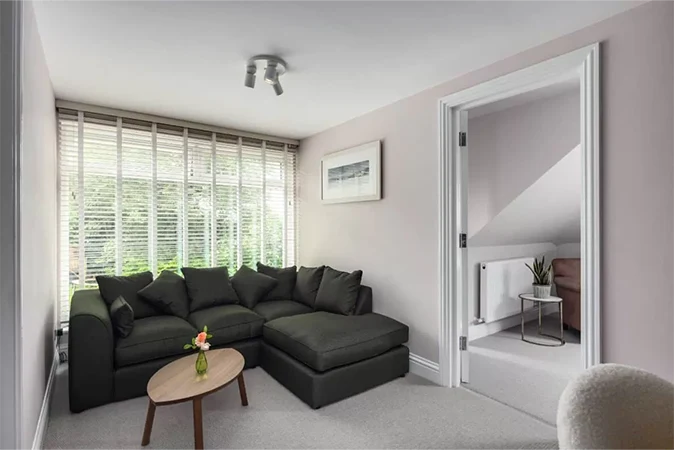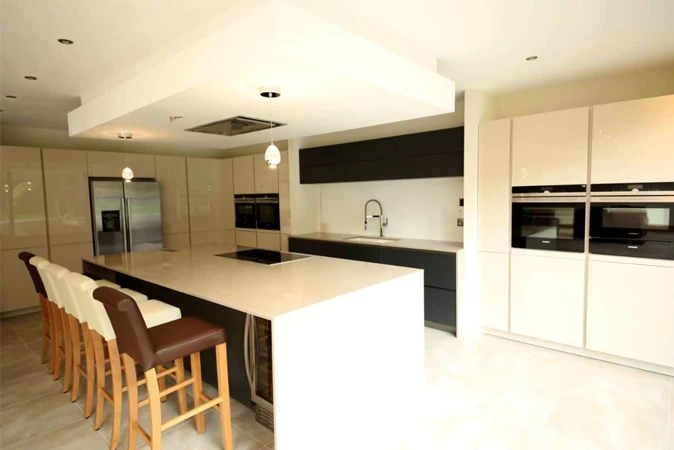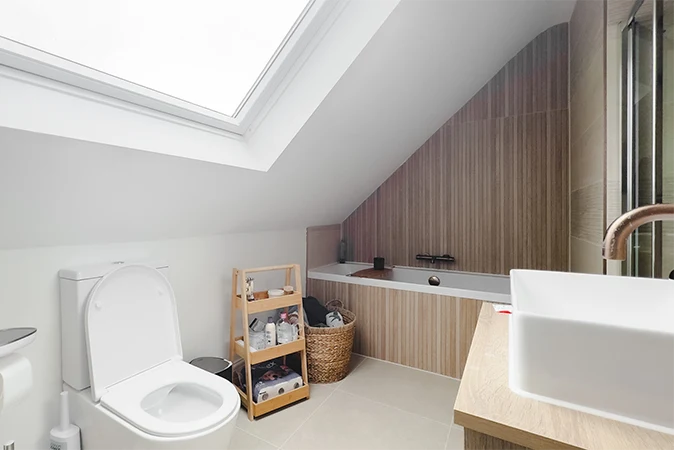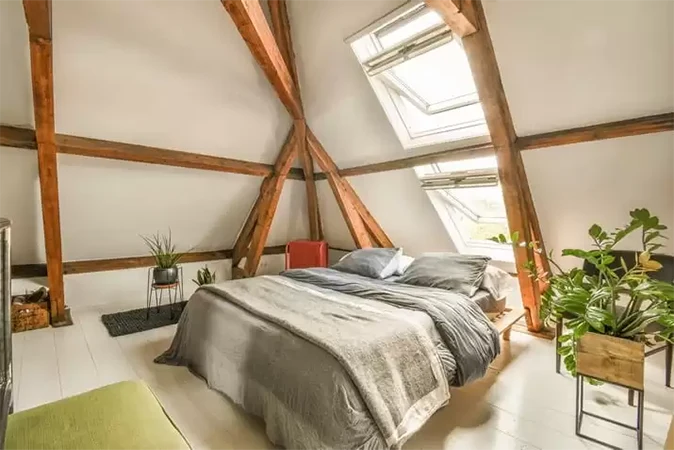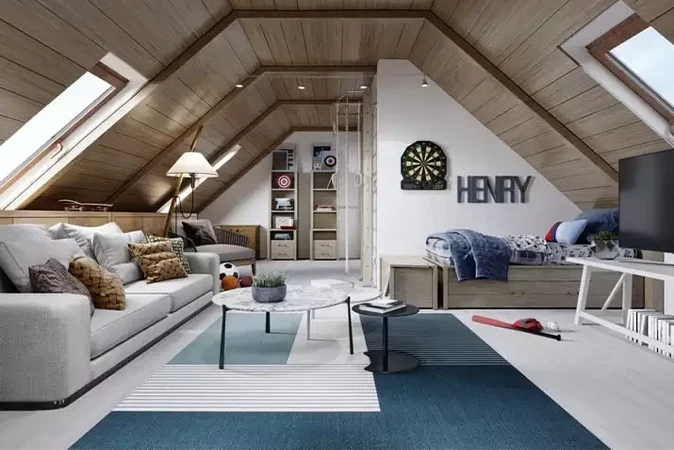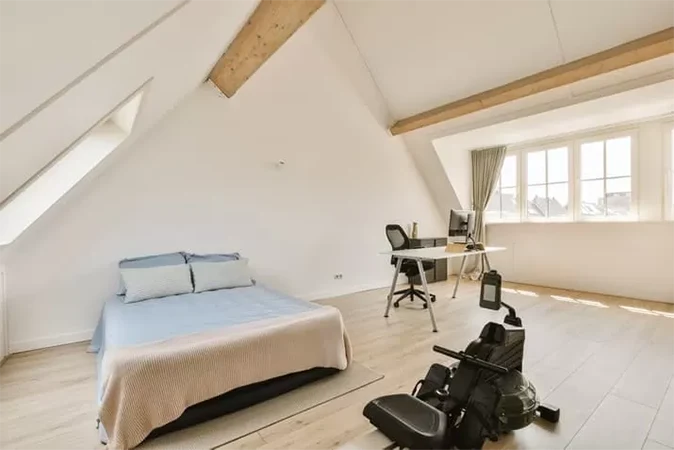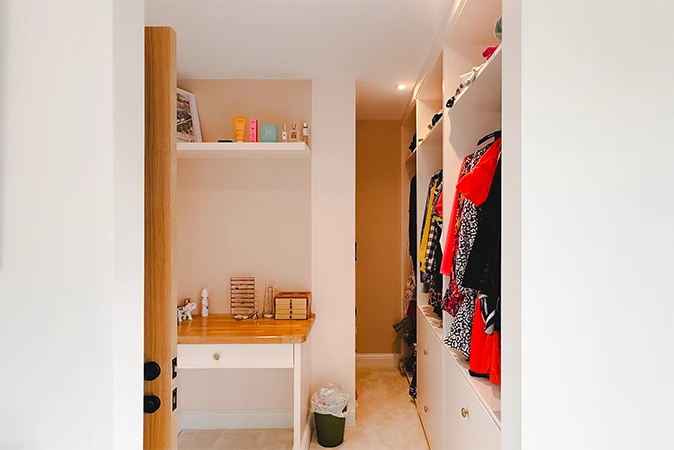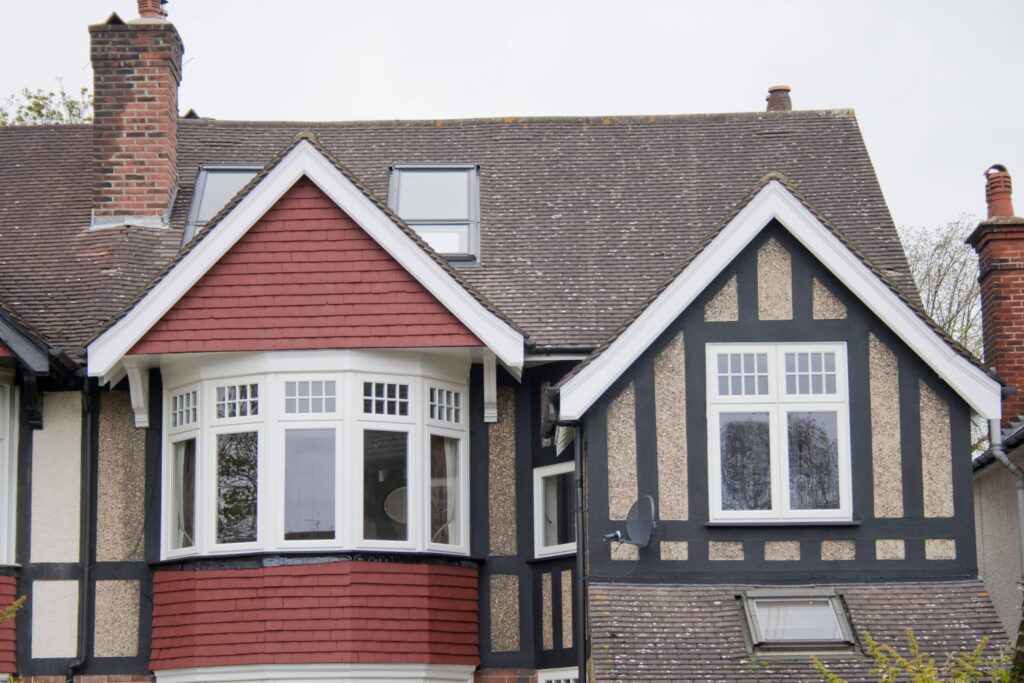Understanding Legal Obligations
Before beginning any construction work, it’s crucial to understand your legal obligations. In the UK, the Party Wall Act 1996 is particularly relevant if you are planning a loft conversion. This law is designed to prevent and resolve disputes in relation to party walls, boundary walls, and excavations near neighbouring buildings. If your loft conversion involves work on a wall that you share with a neighbour (a party wall), you are typically required to notify your neighbours. This notification must be given well in advance – at least two months before the work begins. The notice should include details of the work you plan to carry out, how and when the work will be done, and any access requirements onto their property. Neighbours can agree or disagree with what is proposed. If they disagree, this triggers a dispute resolution process as set out by the Party Wall Act. It is advisable to have detailed architectural plans available to help neighbours understand the scope and impact of the proposed works.
Benefits of Communicating with Your Neighbours
Beyond legal requirements, there are practical benefits to informing and involving your neighbours in your loft conversion plans. First and foremost, early communication can help to prevent disputes or misunderstandings during the construction phase. It also fosters a good relationship and can make the entire process smoother for everyone involved. Discussing your plans can also provide an opportunity to address any concerns your neighbours might have, such as noise, potential damage to their property, or issues with privacy. By addressing these concerns proactively, you can often find solutions that work for both parties, such as scheduling work at more agreeable times or modifying designs to preserve privacy.
Handling Disputes
Despite your best efforts, disputes may still arise. If you find yourself in this situation, it’s important to handle it calmly and legally. The first step should be to try and resolve the issue directly with your neighbour. A face-to-face conversation or a written response can often clear up misunderstandings and provide a quick resolution. If direct negotiation doesn’t work, mediation might be the next step. Mediators can help both parties reach a satisfactory agreement. The Party Wall Act provides mechanisms for resolving disputes, including the appointment of a Party Wall Surveyor. These professionals can make a determination that must be followed by both parties.
Planning and Preparation
A successful loft conversion starts with thorough planning and preparation. When planning your conversion, consider the structural integrity of your house, the type of roof you have, and your budget. Engaging a qualified architect or builder early in the process can save a lot of trouble down the line. They can advise on the feasibility of your plans, the potential for obtaining planning permission if required, and the impact of the building regulations.
The Importance of Professional Advice
Professional advice is invaluable when undertaking a loft conversion. Architects, structural engineers, and surveyors can provide crucial insights into the design, structural requirements, and legalities of converting your loft. They can help ensure that your plans are safe, compliant with building regulations, and likely to add value to your home. Involving professionals early also means they can draw up detailed plans that can be shared with your neighbours, helping to reassure them about the quality and safety of the work. Furthermore, if your neighbours are still in disagreement, these plans can be used in any legal disputes or negotiations.

Considering the Impact on Neighbourly Relations
When planning a loft conversion, the potential impact on your neighbourly relations should not be underestimated. Good relationships with neighbours make for a harmonious living environment and can be crucial when you need mutual support or understanding, particularly during potentially disruptive construction projects. By informing your neighbours early, you’re showing respect and consideration for their peace and living conditions. This proactive approach can significantly reduce feelings of annoyance or frustration that might arise due to the inconveniences of construction activities. Furthermore, keeping neighbours informed helps maintain trust and can even lead to neighbours being more accommodating when it comes to construction-related issues such as temporary access to their property or minor encroachments.
Long-Term Benefits of a Loft Conversion
While the immediate concerns about construction noise and disturbance are often at the forefront of discussions, it’s important to also consider the long-term benefits these renovations can bring. A loft conversion can significantly increase the value of your property by adding extra living space, such as an additional bedroom or bathroom, which is highly attractive to potential buyers. Furthermore, by enhancing the aesthetic appeal and functionality of your home, a loft conversion can contribute to the overall improvement of the neighbourhood’s character and appeal. Sharing these potential long-term benefits with your neighbours might help them see the project in a more positive light, acknowledging that the temporary inconvenience could lead to enhanced property values for the entire area.
Environmental Considerations
Another aspect to discuss with your neighbours is the environmental impact of your loft conversion. Many modern loft conversions are designed with energy efficiency in mind, incorporating features such as solar panels, improved insulation, and energy-efficient windows. These features not only reduce the carbon footprint of your home but can also inspire neighbours to consider similar improvements, leading to broader environmental benefits for the community. Additionally, discussing these features provides another avenue to demonstrate the thoughtfulness and responsibility of your project approach, potentially easing any concerns your neighbours might have about the environmental impact of the construction process.
Navigating Planning Permissions and Regulations
A crucial step in your loft conversion journey involves navigating local planning permissions and building regulations. Not all loft conversions require planning permission, particularly if they fall under permitted development rights; however, this can vary based on specific local council regulations and the scale of the work. It is essential to verify whether your planned conversion requires a planning application. Involving your neighbours in this discussion is prudent, especially if your modifications might alter the external appearance of the building or potentially obstruct views. Discussing your adherence to planning permissions and building regulations with neighbours not only underscores your commitment to legality but also assures them of the project’s professionalism and compliance with safety standards. This transparency can alleviate any apprehensions they might have about potential legal or structural issues arising from your conversion. Moreover, showing that you have obtained all necessary permissions before commencing work can prevent potential legal complications that might delay your project and affect your neighbours.
Post-Construction Follow-Ups
After the completion of the loft conversion, a final step that often goes overlooked is the post-construction follow-up with your neighbours. This is an opportunity to address any residual issues they might have post-construction, such as minor damages to shared spaces or disputes over boundaries that weren’t fully resolved. Taking the time to walk through these concerns can reinforce a positive relationship and demonstrate your ongoing commitment to good neighbourly relations. Additionally, a follow-up provides a chance to showcase the completed work, which can help neighbours see the tangible benefits of the conversion, potentially swaying their perspective positively if they were initially resistant or unsure. This act of closure not only rounds off the project on a high note but also establishes a precedent for handling any future renovations or large projects in your community with consideration and respect. By taking these thoughtful steps throughout the loft conversion process, you ensure that the project progresses smoothly and maintains a harmonious community atmosphere, benefiting everyone involved.
Final Preparations Before Construction
Before the construction starts, it’s important to have a final meeting with your neighbours. This meeting should be used to outline the construction schedule, confirm any agreed-upon conditions such as working hours, and discuss any final concerns they might have. Providing contact information for someone in charge of the site can also reassure neighbours that they have a direct line of communication in case any issues arise. Additionally, it’s beneficial to confirm any agreements in writing—this can include consent forms or a record of agreed conditions under the Party Wall Act. Final preparations and clear communications help ensure that once the construction starts, it proceeds as smoothly as possible with minimal disruptions to both you and your neighbours.
Understanding Party Wall Notices and Surveyors
When your loft conversion involves structural work on a wall that you share with a neighbouring property—such as in many terraced or semi-detached homes across areas like Balham or East Dulwich—you will likely need to serve a Party Wall Notice under the Party Wall etc. Act 1996. This legal requirement exists to protect both property owners during building work that could affect the structural integrity of a shared boundary wall or adjoining structure. You must issue a written notice at least two months before any work is due to start. The notice should outline exactly what you plan to do, how the work will be carried out, and whether any access to your neighbour’s property will be required. If your neighbour gives written consent within 14 days, the process can move forward without any further delay. If they dissent or fail to respond, a Party Wall Surveyor will need to be appointed to produce a Party Wall Award. This agreement sets out the rights and responsibilities of both parties and ensures the work proceeds lawfully and safely, minimising the risk of disputes later on.
When Neighbours Say No: What Are Your Options?
Receiving an objection from a neighbour about your loft conversion plans can feel disheartening, but it doesn’t mean your project must be cancelled. If you’ve served a Party Wall Notice and your neighbour either refuses consent or does not respond within the 14-day timeframe, the situation is treated as a dispute under the Party Wall Act. In this case, you will need to appoint a Party Wall Surveyor to act as an impartial third party, or both parties can choose to appoint their own surveyors. These professionals are trained to assess the situation fairly and help move the project forward in a legally compliant way. The Party Wall Surveyor(s) will then produce a document known as a Party Wall Award. This outlines how the work can proceed while safeguarding the interests of both homeowners. If your project meets permitted development criteria or already has planning approval, your neighbour’s objections often carry limited weight unless there are structural or legal concerns. Maintaining a respectful and calm approach, even in disagreement, can help preserve good relationships and prevent unnecessary tension throughout your project.
Protecting Your Property—and Theirs
During a loft conversion, it’s important not just to protect your own property, but also to consider the potential impact on your neighbour’s home. One effective way to do this is through a pre-construction condition survey. This survey documents the state of the neighbouring property before work begins, including photographs and written descriptions of any existing cracks, blemishes, or structural issues. If any disputes arise during or after construction about damage, this record provides an objective reference point to resolve them fairly. This process benefits both parties. Your neighbours are reassured that their property is being respected, and you gain peace of mind knowing that false or exaggerated damage claims can be addressed accurately. Additionally, professional Balham loft conversion specialists like LMB Group take preventative measures to minimise disruption—such as using vibration-controlled equipment, installing protective barriers, and ensuring scaffolding does not encroach on neighbouring boundaries without permission. Openly discussing these safeguards with your neighbours helps build trust and demonstrates your commitment to responsible building practices. It’s another proactive step toward ensuring your loft conversion progresses smoothly and without conflict.
Contact The Experts At LMB Group For More Advice
Telling your neighbours about your loft conversion isn’t just a courtesy; it’s often a legal requirement that can prevent costly and stressful disputes. Early and open communication can facilitate a smoother process and better relationships with those living around you. While it might seem daunting to approach neighbours about your plans, doing so can lead to a more peaceful and productive building experience. Remember, thorough planning, professional advice, and legal compliance are your best tools when converting your loft. Get in touch with the friendly and professional team at LMB Group.









